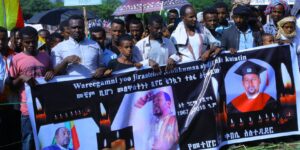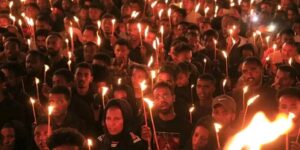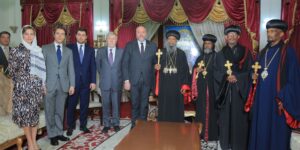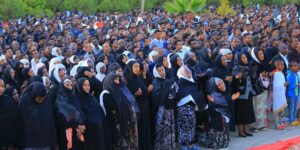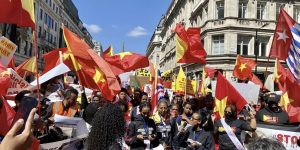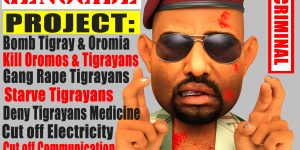It is important to recognise that Tigray is a highly religious society that appreciates bodily virginity, especially for women and girls prior to marriage, and the systematic and degrading type of sexual violence used seems intentional to permanently damage (physically and socially) the victims, debasing also the religious cultural values of the people. This is evidenced also from alleged reports of soldiers raping nuns in the town of Wukro and soldiers seeking to rape virgins.
A report by the Ethiopian Human Rights Commission released in February reported children being maimed by landmines, bombs or stray bullets. The report referred to the extensive looting of hospitals and medical supplies and ambulances by combatants, resulting in the death of patients in need of urgent medical support and the inability of victims of rape to receive medical aid.
In addition, many internally displaced populations were reported to have witnessed war violence, including the loss of family relatives, which contributed to grave trauma and sadness that is largely being left un addressed given the limited access to aid workers and psychosocial support services provided by humanitarian organisations.
Beyond the need for an immediate ceasefire in Tigray, it seems extremely important to counter-balance the animosity and hate speech prevalent in political discourse and on social media with calls for peace and reconciliation and to cultivate empathy for the victims/survivors of Tigray.
Members of the Ethiopian diaspora who fled Ethiopia and hold grievances towards the TPLF have been at the forefront of fostering favourable sentiments towards the war, failing to recognise their unwarranted role in dictating Ethiopian political decisions while not sharing the same realities with Ethiopians in Ethiopia. Many Ethiopians within Ethiopia, on the other hand, continue to be guided by ethnicity-based antagonisms, which hinders their ability to acknowledge the plight of the Tigrayan people and show empathy. ![]() Internationally, while many Eritreans have opposed the perceived authoritarian regime of Eritrea’s leader Isaias Afwerki, not all have been as outspoken in condemning Eritrea’s participation in the Tigray war, suggesting that ethno-religious grievances towards Tigray still hold strong among some Eritreans.
Internationally, while many Eritreans have opposed the perceived authoritarian regime of Eritrea’s leader Isaias Afwerki, not all have been as outspoken in condemning Eritrea’s participation in the Tigray war, suggesting that ethno-religious grievances towards Tigray still hold strong among some Eritreans.
On the other hand, the conflict has led many Eritreans and Tigrayans to unite their voices and to condemn the participation of Eritrea in the war and the repeat of another war and to call for the Eritrean army’s withdrawal from Tigray. Such voices can curve a road to reconciliation and to rebuilding peace in the region. In parallel, it seems important to challenge distorted uses of religious language that seek to justify “patriotic” political aims in mainstream Ethiopian media and political discourse. Whatever positionality one has in the current conflict and no matter how limited power one has to change the situation, it is important to try to “humanise” the current political discourses by focusing on the victims/survivors and stressing everyone’s duty to protect human life—no matter geography, ethnicity, or religion. Unless Ethiopians and Eritreans in the respective countries and the diaspora communities openly and strongly condemn violence as a political solution and call out leaders who choose such means, the inevitable and intergenerational consequences of another devastating war will be felt by all.
Tigray the land of the wise, faithful and courageous!
Ethiopia Autonomous Media
- Lideta Sub City Woreda celebrated International Women’s Day - 11th March 2024
- THE AMHARA FANO FREEDOM FIGHTERS - 13th February 2024
- GREAT VICTORY FROM SHOWA GOVERNORATE - 12th February 2024

